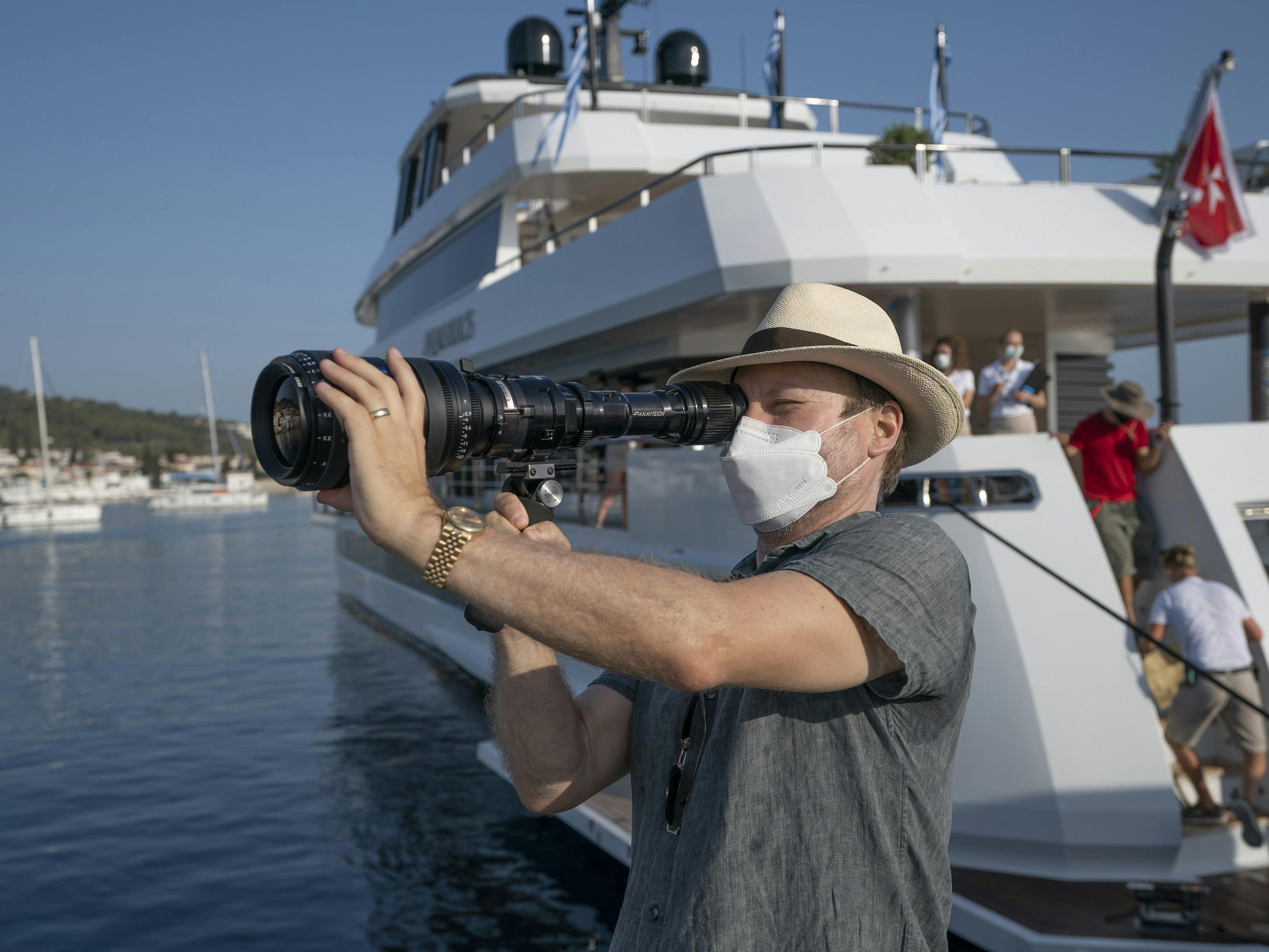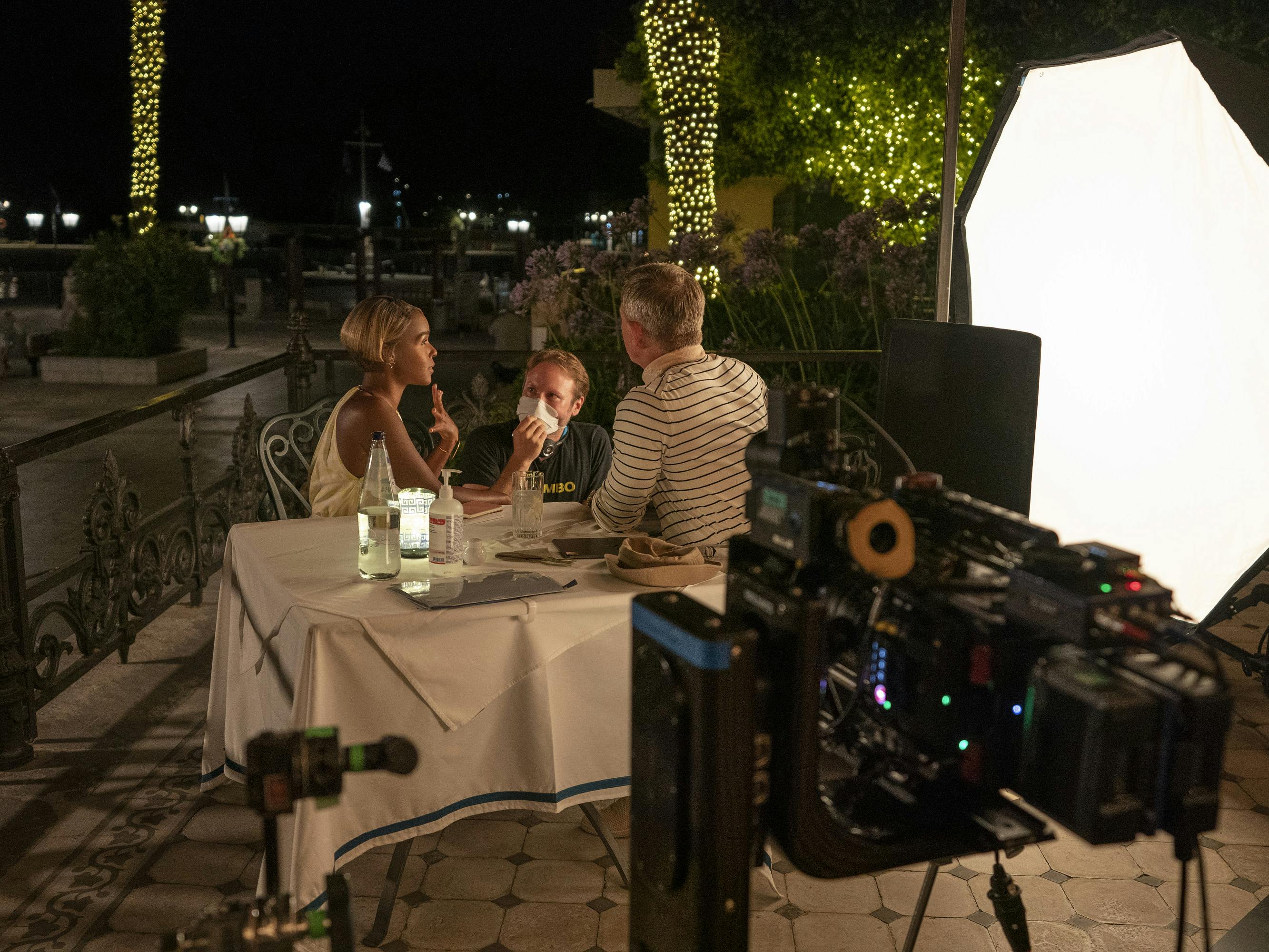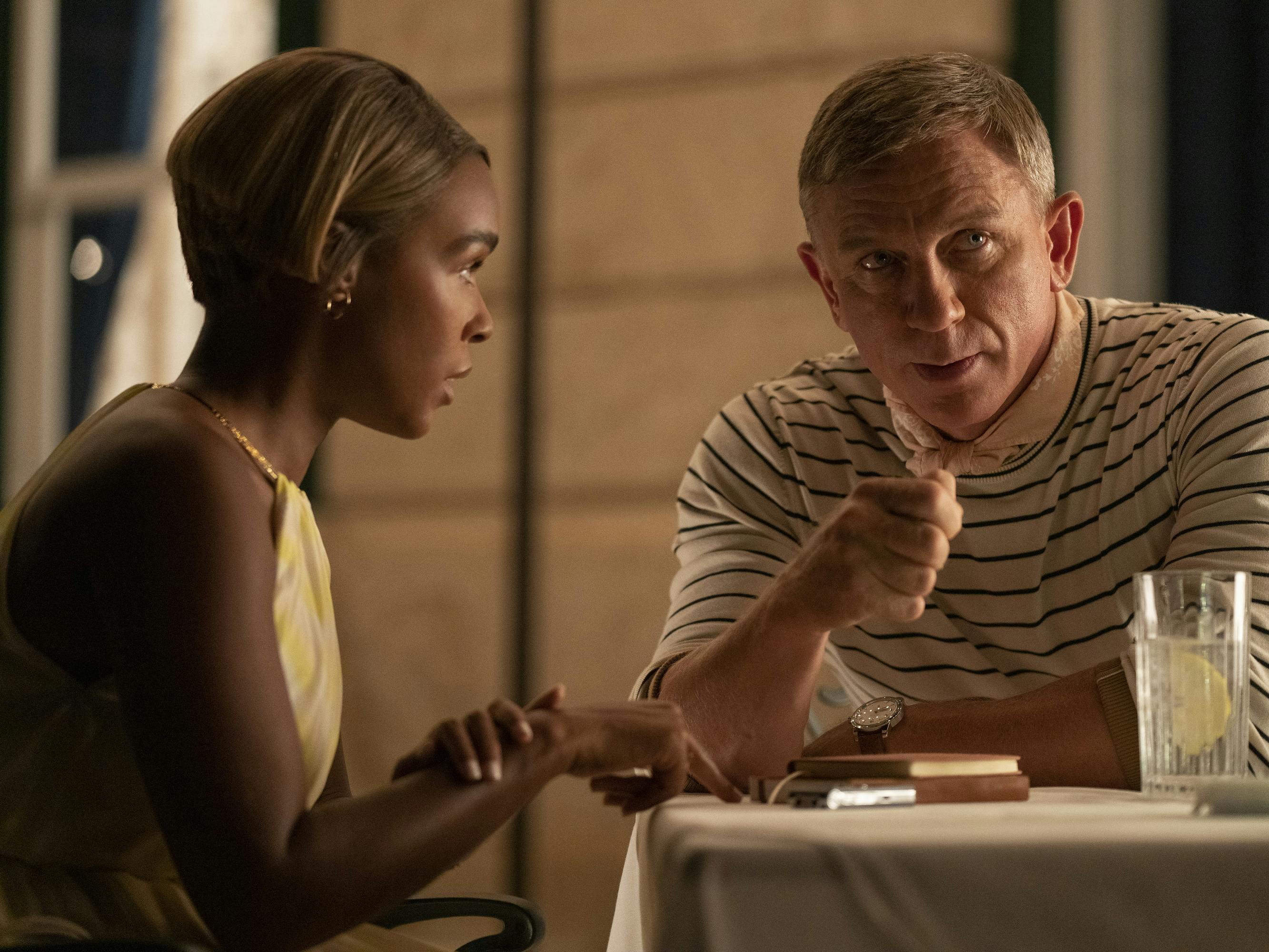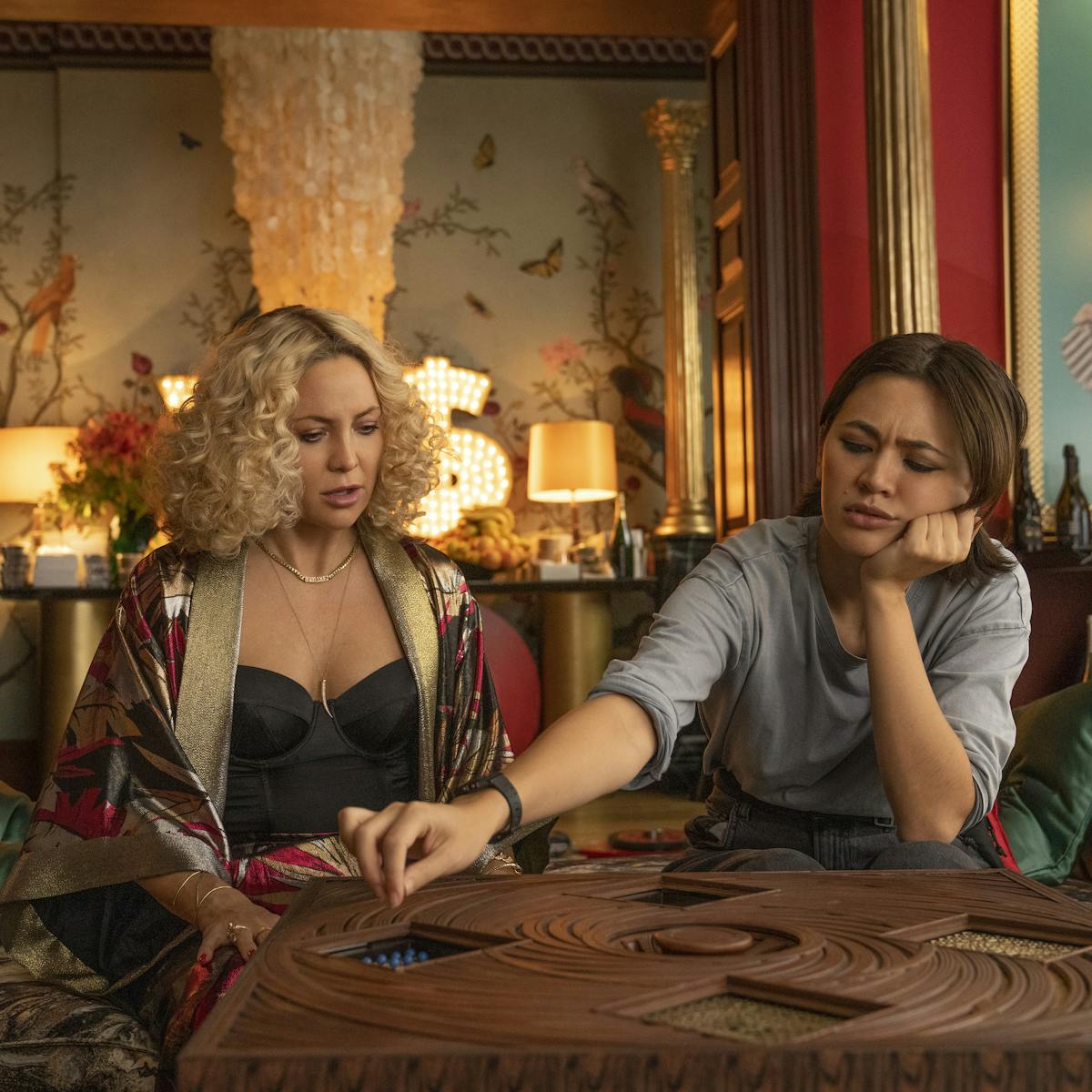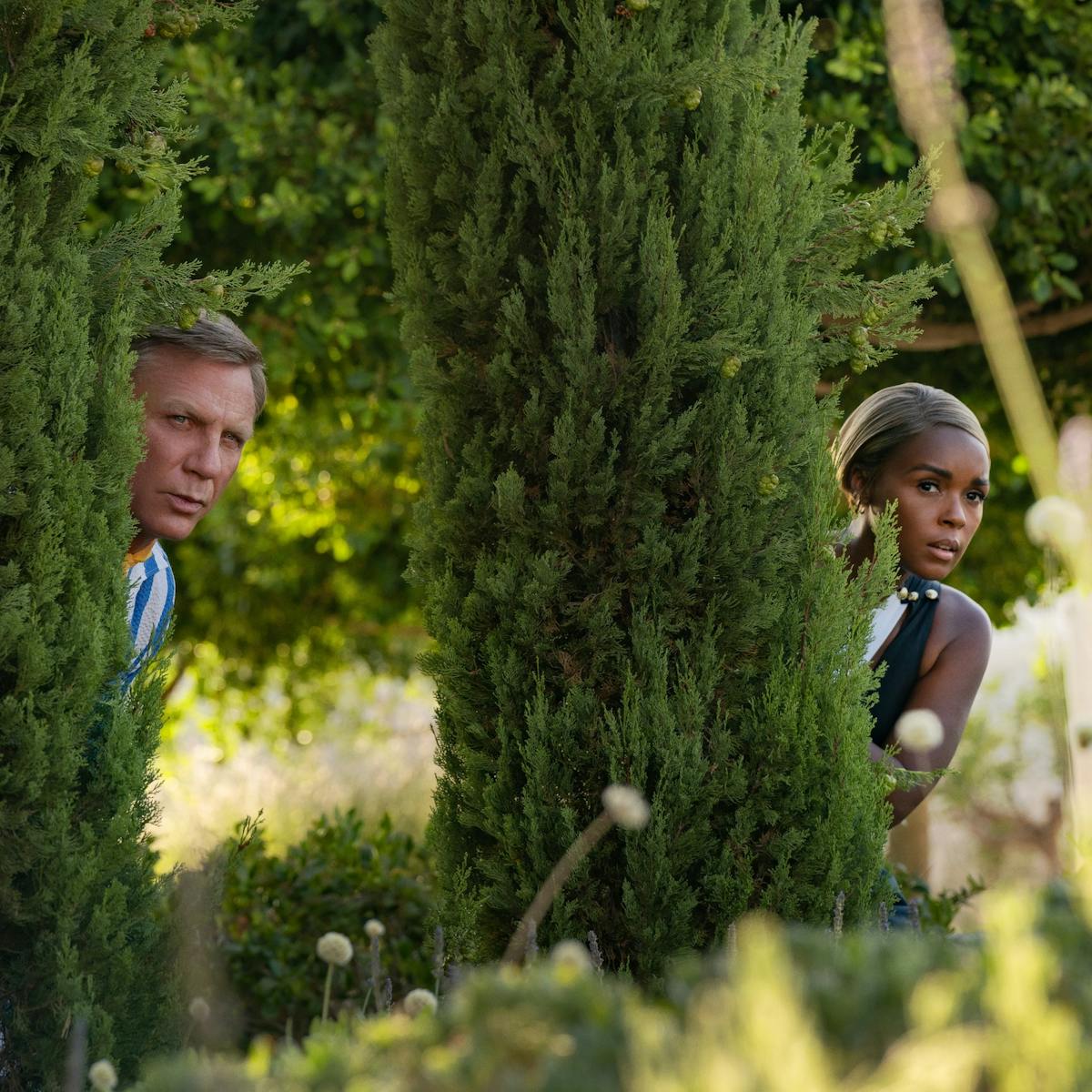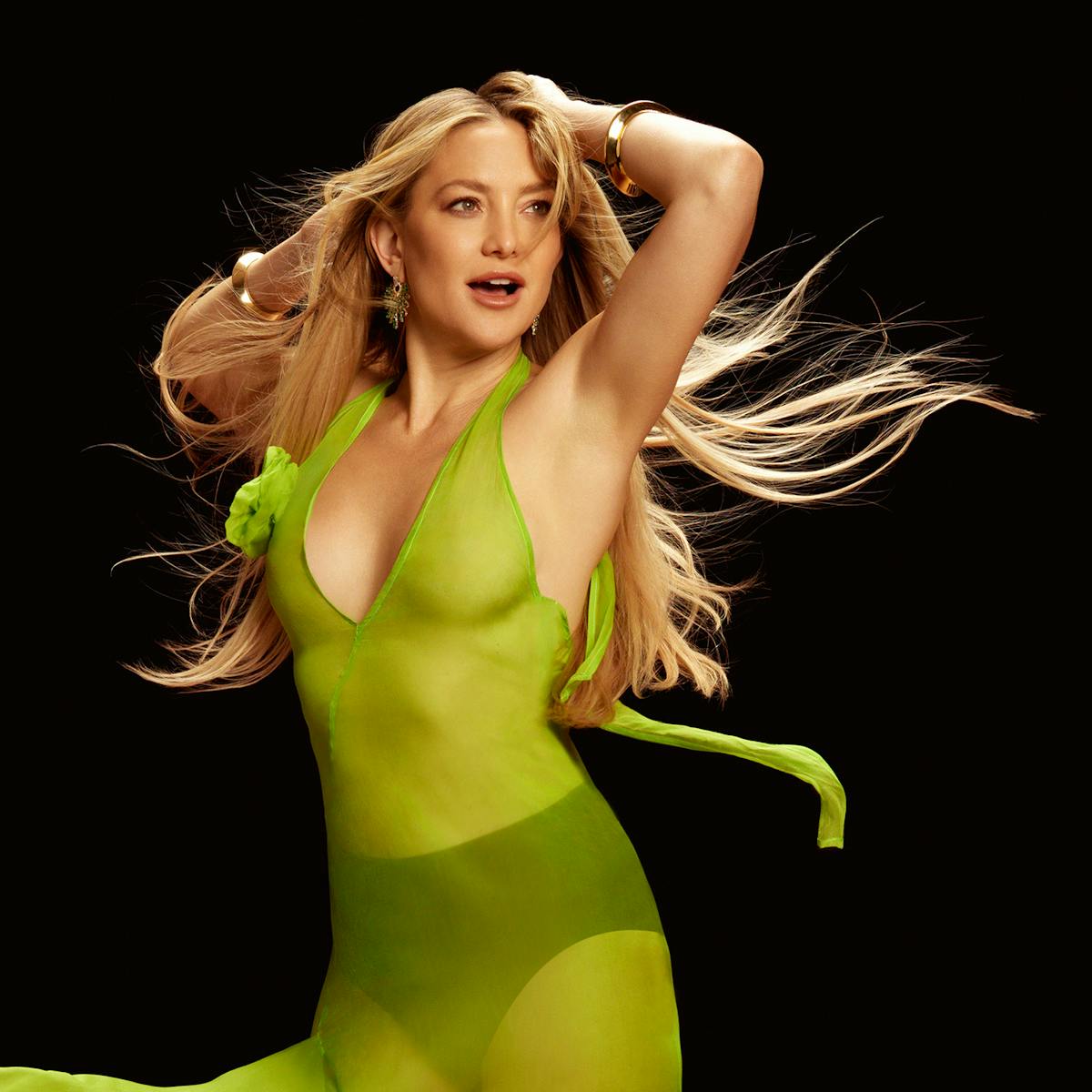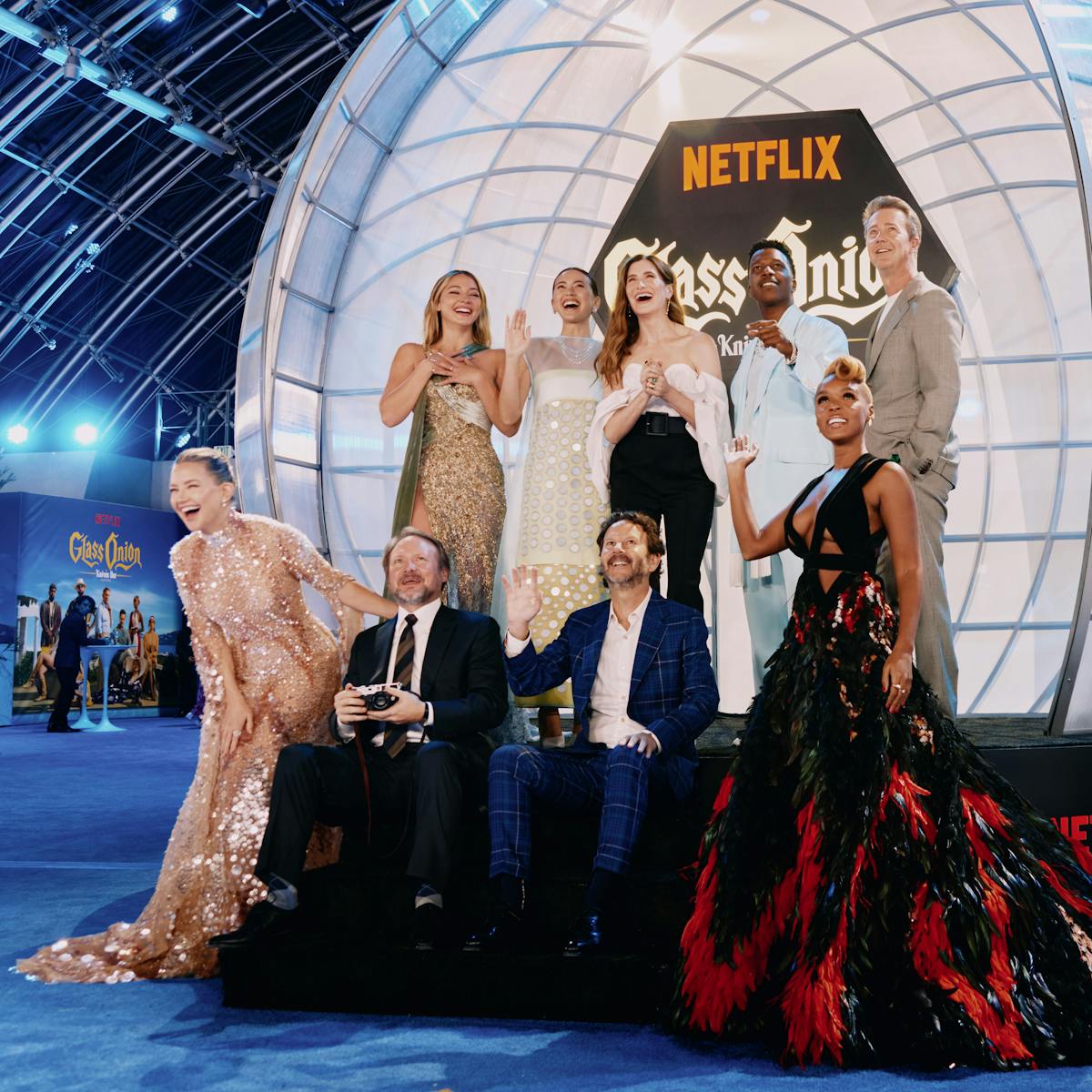Benoit Blanc is back — and as excited as you might be to watch Daniel Craig’s Southern sleuth detect and deduce in the highly anticipated Glass Onion: A Knives Out Mystery, no one’s as giddy about the film’s unveiling as writer-director Rian Johnson. “I feel like a kid, and it’s Christmas morning,” Johnson tells Queue. “This is as good as it gets.”
“As good as it gets” also describes Johnson’s enthralling new whodunit, which sends Blanc to a lavish private estate on a Greek island where he finds himself among an eccentric cast of characters played by Edward Norton, Janelle Monáe, Kathryn Hahn, Leslie Odom Jr., Jessica Henwick, Madelyn Cline, Kate Hudson, and Dave Bautista. As follow-ups go, Glass Onion retains all the magic of 2019’s Knives Out — which netted Johnson a Best Original Screenplay Oscar nomination — while offering plenty of surprising new charms of its own.
Johnson’s affinity for the mystery genre should come as no surprise — he grew up loving Agatha Christie novels and Alfred Hitchcock films and has demonstrated a knack for building tension and suspense onscreen since his award-winning 2005 Sundance debut, Brick. But what’s perhaps most consistent about Johnson’s work is its originality. His second feature, 2008’s The Brothers Bloom, paired Adrien Brody and Mark Ruffalo as con men who set out on a globetrotting adventure to grift Rachel Weisz’s heiress. Looper, his third feature, which stars Joseph Gordon-Levitt, Emily Blunt, and Bruce Willis, and tells a time-traveling story about an assassin sent into the past to murder himself, followed in 2012. His biggest feature, 2017’s Star Wars: The Last Jedi, served as perhaps the greatest creative departure for the blockbuster franchise, casting virtuous hero Luke Skywalker as a brooding loner grieving for the perceived failings of his past. It was a bold and controversial choice with a big payoff, including four Oscar nominations.
It’s no wonder that actors line up for the chance to work with him. “My two abiding reasons for doing this film would be Rian Johnson and Rian Johnson,” Norton told Queue of his decision to star as tech billionaire Miles Bron in Glass Onion. “I love Rian’s stuff. I’ve always loved it. What Rian does is take the conventions of the form, and then he [sets] it in the now. With Miles, my character, he stuck a fork into dynamics that we are seeing out there today, a certain class of tech illuminati — he grabbed a hold of something that we’re seeing emerge in American life and nested [it] inside this really frothy, hilarious thing in a way that I loved.”
Johnson’s passion for mysteries, his approach to the creative process, and hard work have helped the director forge a singular path in Hollywood. Here, he offers some telling clues about what the future holds, for both his career and for Blanc.
An edited transcript of the conversation follows.
Krista Smith: Talk to me a little bit about this genre, the writing, this character of Benoit Blanc. Where does that come from for you?
Rian Johnson: The whole thing started with Agatha Christie. When I was a kid, there were always Agatha Christie paperbacks on the shelf at my parents’ home, at my grandparents’ home. It felt like the first adult book that I would pick off the shelf as a kid and start reading. And then, of course, there were the Christie adaptations I watched when I was a kid. I was really into the Peter Ustinov ones because he played more into the humor of [detective] Poirot. As a kid, I responded to that. Death on the Nile is just a classic, but Evil Under the Sun has much more of an influence on this movie actually, along with The Last of Sheila. But, it started just with the idea of a whodunit and wanting to approach that genre.
Whodunits for a while [were] largely Christie adaptations, a lot of which were great, but they tended to be period pieces set in England. When Christie was writing those, she wasn’t writing these quaint little things set in the past. She was writing to her time and was engaging with her current culture. So the idea [was to do] what she did then in terms of, Let’s write a whodunit that takes place in America and let’s engage with what’s happening right now. Not that these are huge social messages or huge political or cultural movies — they’re mostly entertainments. But just like Christie did, they’re also engaging with America, in this case in the 2020s.
Movies were not the family business. How did you make your way into the industry?
RJ: I had no connection at all to the movie business. I just started telling and writing stories. And then soon as I could, [I tried to] get my hands on a video camera. I was one of those kids.
Do you feel like going to U.S.C. made a huge difference for you?
RJ: Yeah. One of my best friends and my cinematographer, Steve Yedlin, I met on a student film set when I was a freshman. I think that’s the way that film school does make a difference. I don’t know that you really learned how to make movies in a classroom. I think that comes from watching movies and making your own movies. But the people that you meet in that environment, who you then hang around with, that’s the real value.
What did you learn through that process? Because you’ve been so prolific in a super short amount of time. Knives Out and Glass Onion, The Last Jedi, Looper, Brick. It feels like you were shot out of a cannon.
RJ: There’s no cannon shooting. It really is just clawing your way out of the cannon. I wrote my first movie, Brick, right out of college, so when I was 22, 23. I didn’t get it made until I was 30, which I know is still very young, but it was a good seven, eight years of trying to get it made and just failing. During that time, I would ask people who had made their first movie, How do you do it? And they would always give answers that I would be really frustrated with: Well, you just have to not give up. Now looking back, it’s hard because there are no answers. The reality is it’s a different path for every single person, and the path rolls up behind the heels of every person who does it.
Does anything change as you’re writing Glass Onion or is it all storyboarded out before you start?
RJ: Well, I do a really detailed outline, and I figure out the mechanics of the story. Then you start writing it, and you find yourself being carried off down the river. The exact same [thing] happens from script to production. It seems perfect, and then you put it on its feet with actors, and it has to feel right. Then you get all your scenes beautifully shot, and you get in the edit, and the thing happens again. You’re like, Okay, we had this planned, but then you’ve got to throw it out in the edit and just make the movie work.
Did you always imagine Daniel Craig as your Benoit?
RJ: Oh God, no. I wrote the character in a vacuum. Basically, when I started writing the Benoit Blanc character, I screwed myself up because I started thinking that I wanted to create a Poirot or a Sherlock Holmes, so I started loading him up with all these quirks, and he just became ridiculous. Finally, I said, I’m not going to try and create a character on the page beyond what his actions are in the mystery. So the only thing I gave him was, I think I called it a “light Southern drawl.” Then I just wrote to his function in the story, and thought, When I find whoever’s going to play this, then we’ll work together and we’ll create the character. It wasn’t like we changed the dialogue or changed the script or anything — just Daniel inhabiting that role and bringing his vibe to it instantly brought it to life. No eye patch required, thank God.
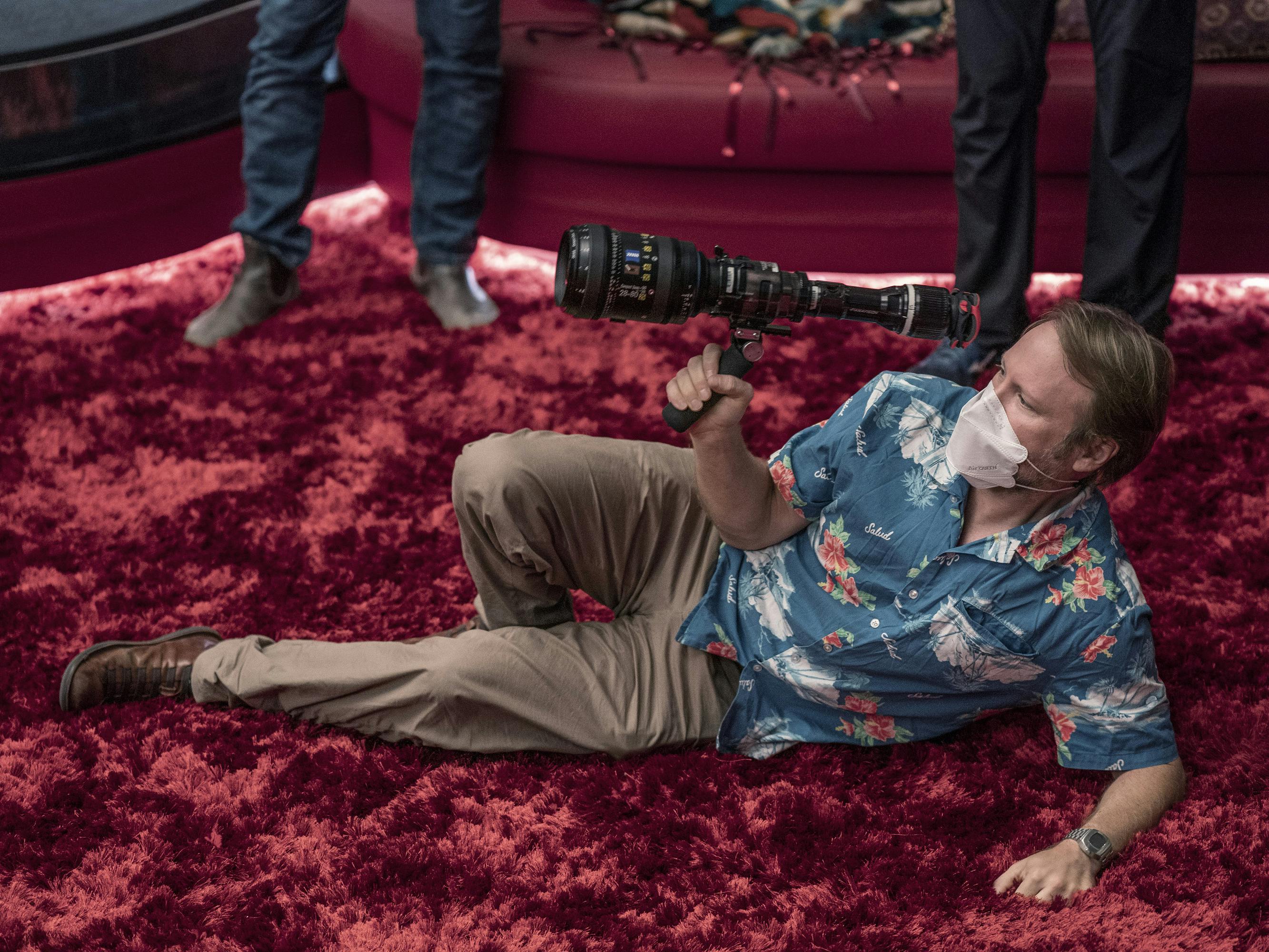
Rian Johnson
It looks like Craig’s having so much fun doing it.
RJ: He is having a lot of fun. It’s amazing the amount that he works on this character. Having glimpsed behind the curtain, he makes it look really easy, but he’s also just a phenomenally skilled actor who works his ass off at it.
So, do you already have the third in this series in your mind right now?
RJ: Oh my god. What do you want from my life? Did Netflix send you?
I’m just curious. As a writer, you’re so prolific, and you’re thinking all the time.
RJ: God bless you for using the “p” word. I’m glad I’m manufacturing that illusion. I am already starting to [think about the next film] — not because I feel like, Boy, I better get the next one going, but because it’s so much fun. Knives Out and Glass Onion are so different, and that harkens back to Christie in another way that’s exciting for me. She would always find ways of completely shaking it up from book to book and making it exciting for the reader, but you could also tell it was still exciting for her. She was creatively challenging herself each time. That is so much fun to me, trying something different narratively and tonally, and in the context of a genre I love working in, getting to work with a guy who’s just one of the best actors on Earth and is now a good friend — I am already excited about doing the next one.

